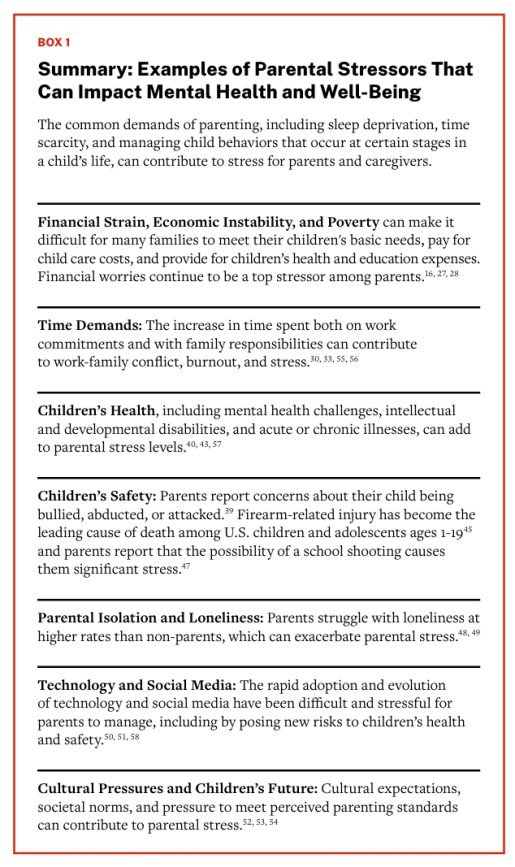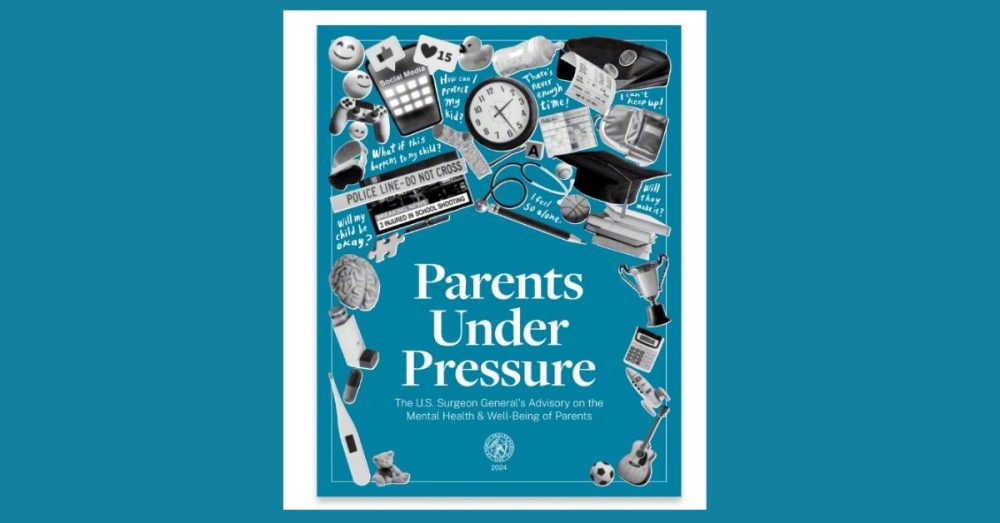Kids are not the only ones feeling the stressors of living in a society of increased school violence, cyberbullying, depression, and anxiety. According to a new review, parents are also struggling with their mental health.
There are around 63 million parents with children under 18 in the United States, and this total doesn’t account for the countless “non-parent caregivers” who are primarily responsible for caring for children. As such, caregivers’ mental health is a growing concern, and the U.S. Surgeon General has responded to this concern.
The U.S. Surgeon General recently released a “Parents Under Pressure” Advisory on parents’ mental health and well-being.
The 36-page review includes the following subjects: the present condition of parental stress and well-being, the link between parental stress and mental health, the influence of parental mental health, and recommended measures to be implemented.
“Parents often say parenting is one of the best jobs but also one of the hardest,” began the forward by Vivek H. Murthy, M.D., M.B.A., 19th and 21st Surgeon General of the United States, Vice Admiral, United States Public Health Service.
What is a Surgeon General’s Advisory?
“A Surgeon General’s Advisory is a public statement that calls the American people’s attention to an urgent public health issue and provides recommendations for how it should be addressed. Advisories are reserved for significant public health challenges that require the nation’s immediate awareness and action,” per the document.
The Advisory identified everyday pressures experienced by parents, such as managing time, dealing with financial difficulties, ensuring the health and safety of their children, planning for their children’s future, coping with feelings of isolation, and navigating social media.
In 2023, the Advisory found that 33% of parents had significantly higher levels of stress in the past month compared to 20% of other adults. Additionally, 48% of parents reported feeling overwhelmed by stress on most days, while only 26% of other adults felt the same way.
Several additional Office of the U.S. Surgeon General statistics may not come as a surprise:
- Nearly 3-in-4 parents are extremely or somewhat worried that their child will struggle with anxiety or depression.
- In the last decade child care prices have grown by approximately 26% in the U.S.
- Nearly 70% of parents say parenting is now more difficult than it was 20 years ago, with children’s use of technology and social media as the top two cited reasons.
- One-in-four U.S. parents said there have been times in the past year when they did not have enough money for basic needs.
Labor pains are followed by mental labor.
The Advisory notes that mental labor in parenting can include “balancing complex schedules, anticipating a child’s evolving needs, making countless decisions each day on behalf of a child, and monitoring progress — can limit working memory capacity and negatively impact attentional resources, cognitive functioning, and psychological well-being.”
Sandwich generation.
Parents who are also caring for aging parents face additional strain. These parents are often tasked with taking care of their aging parents, including providing transportation and helping with their health needs, while also managing the responsibilities of raising their own children.
“Caregivers who care for both children (<18 years) and aging family members (≥65 years) report more significant financial (23.5% vs. 12.2%) and emotional difficulties (44.1% vs. 32.2%) than caregivers who do not,” per the Advisory.
Balancing time, or even finding time to care for others, has become more difficult as the average employment work hours for parents have increased over time, the Advisory noted. As such, the individual who is usually left out of the caregiving is the caregiver.

The Advisory states, “We must recognize the importance of parenting and reflect it in how we prioritize resources, design policy, shape work environments, and approach our conversations with parents.”
“Simply put, caregivers need care, too,” concluded the Advisory.


